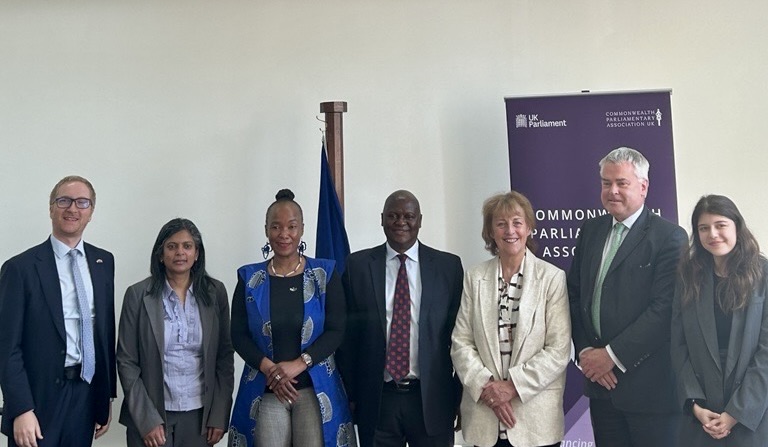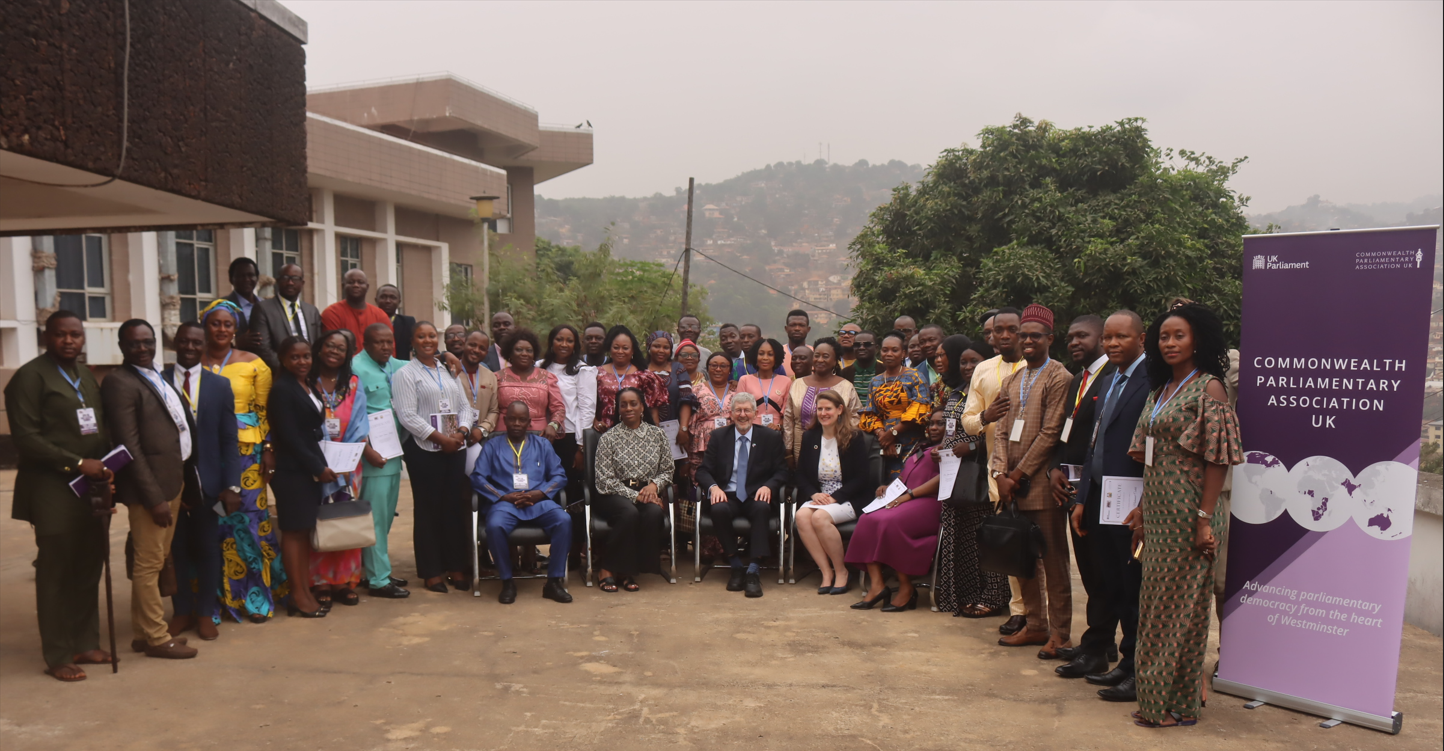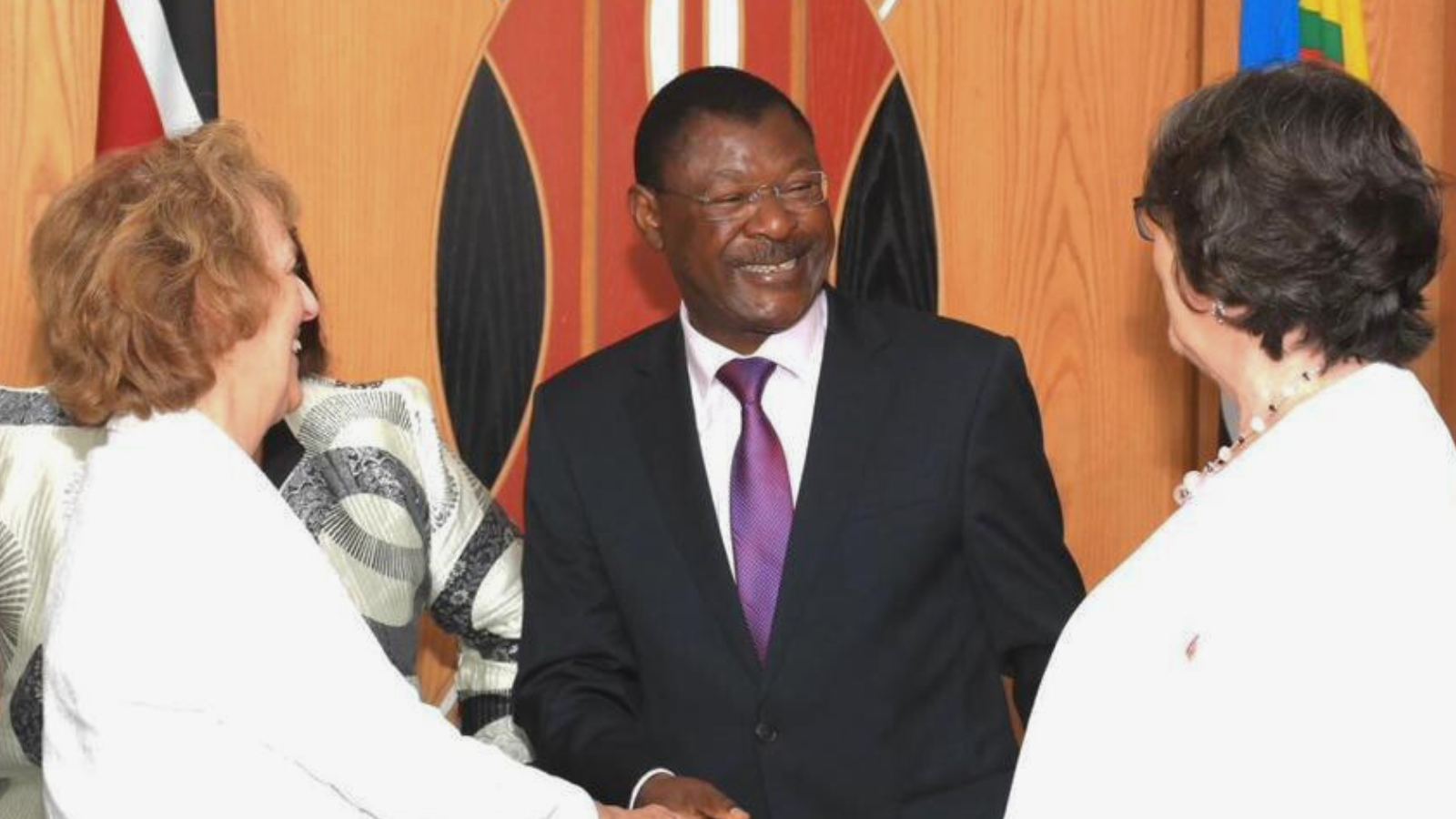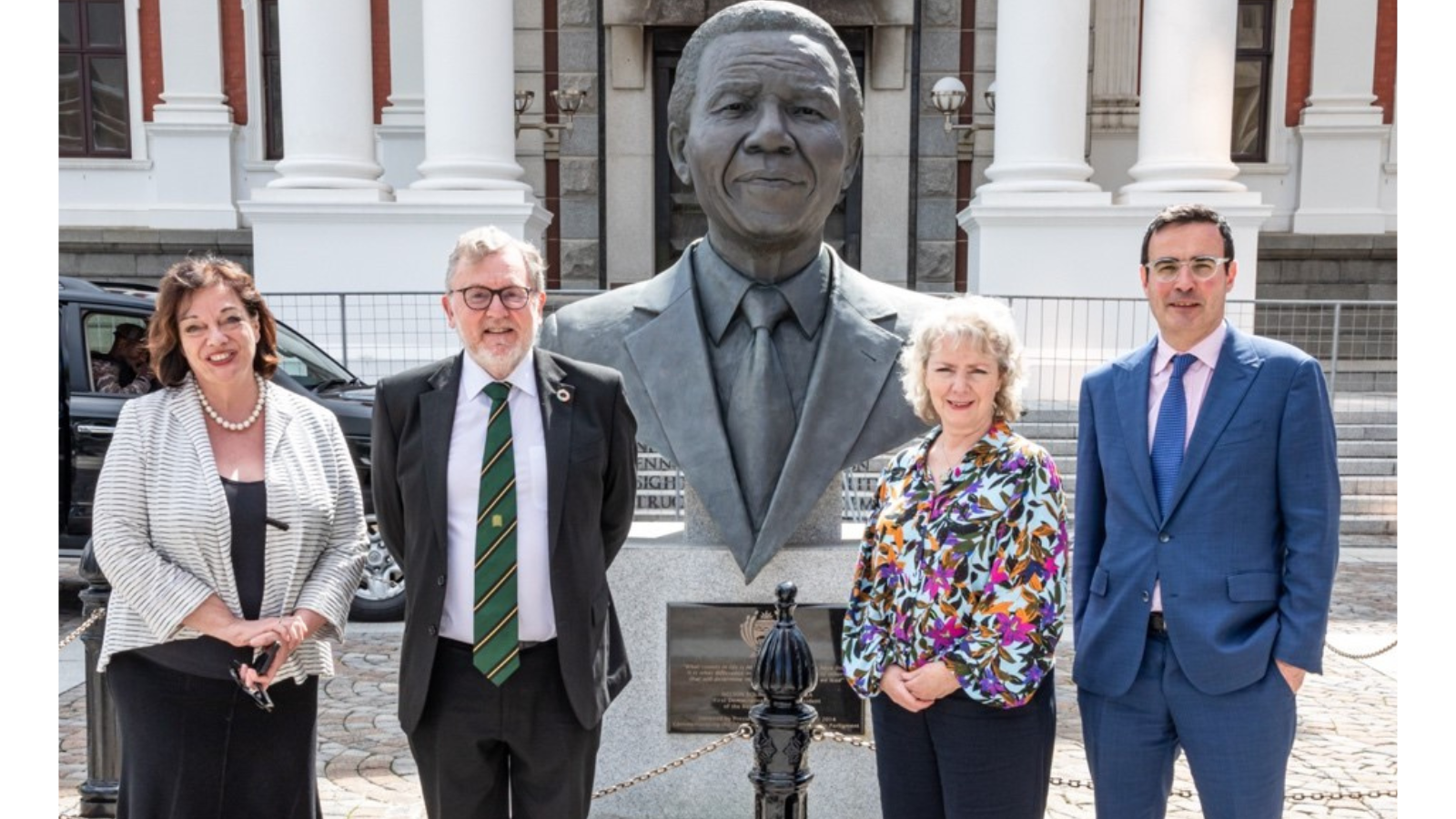Lesotho – Parliamentary Assessment Programme
Published 20 December 2019

The CPA UK team discussing with committee chairs and members
The Government of Lesotho recently initiated a National Reforms Programme which covers the following sectors: Constitutional reform, Parliamentary reform, Public Service sector, Justice sector, Security sector, Economic and Media sector. To this effect, the Parliament of Lesotho passed the National Reforms Bill, intending to establish the National Reforms Authority (NRA) to manage, coordinate, and lead the reforms process. The NRA also aims to spearhead measures aimed at promoting stakeholder consensus and national stability, unity and reconciliation in Lesotho.
Reviewing and reforming the national security agencies is one of the key objectives of the National Reforms Programme. Some of the key security sector challenges identified are:
- Overlapping mandates and functions of the different security sector agencies;
- Relations among the various security sector agencies;
- Relations between the civilian leadership and the leadership of the security sector agencies;
- Appointment of the leadership of the security sector agencies;
- Limited synergy and complementarity among the different security sector agencies.
Within the National Reforms Programme framework, the Parliament drafted a Concept Note for Lesotho Parliamentary Reforms which also includes the Parliament Portfolio Committee over Security Matters’ capacity to efficiently and effectively perform its oversight role.
To support the Parliament’s role in the reform process and on request of the British High Commission, CPA UK sent a team of three officials to conduct a rapid assessment of the capacity and technical skills of the Parliamentary Portfolio Committees within the context of the National Reforms Programme.
The three-day visit by UK officials included meetings with the members of parliament, the speaker and deputy speaker of the National Assembly, and parliamentary officials. The UK team also met with key external stakeholders, including military leaders, civil servants, and security sector experts. The assessment team also organised a capacity building training programme for parliamentary staff.
This assessment primarily gathered evidence through individual and group discussions, and the discussions during the training programme with parliamentary officials and Members. Parliamentary officials were drawn from the following department.
- The Committee’s Department
- The Office of the Clerk
- The Library and research team
- The Table Office
- HR Directorate

Capacity building programme for parliamentary clerks
Evidence was also gathered from external key stakeholders and the ‘customers’ of the Parliament like security experts, United Nations officials, civil servants and defence staff. Please see Annex II for the full list of meetings.
During the assessment process, the following thematic areas were discussed:
- The day-to-day functioning of the committee office and the division of responsibilities
- Powers, procedures and working methods of the committees
- The role of the procedural office
- Challenges and difficulties faced by the chair, committee members and clerks
- Governance of parliament and committees
- External and internal stakeholder relationships, including committees’ public engagement
- Long and short-term planning of work programmes
- Staff training and development
- Financial and staff resources
- Relationship between clerks and Members
- Report writing skills
The assessment team included George Woodhams, Committee Specialist, House of Commons; Leoni Kurt, Clerk, House of Commons; and Yashasvi Chandra, CPA UK.
The team is preparing its assessment report along with recommendations and will be soon submitted to the British High Commissioner in Maseru.



